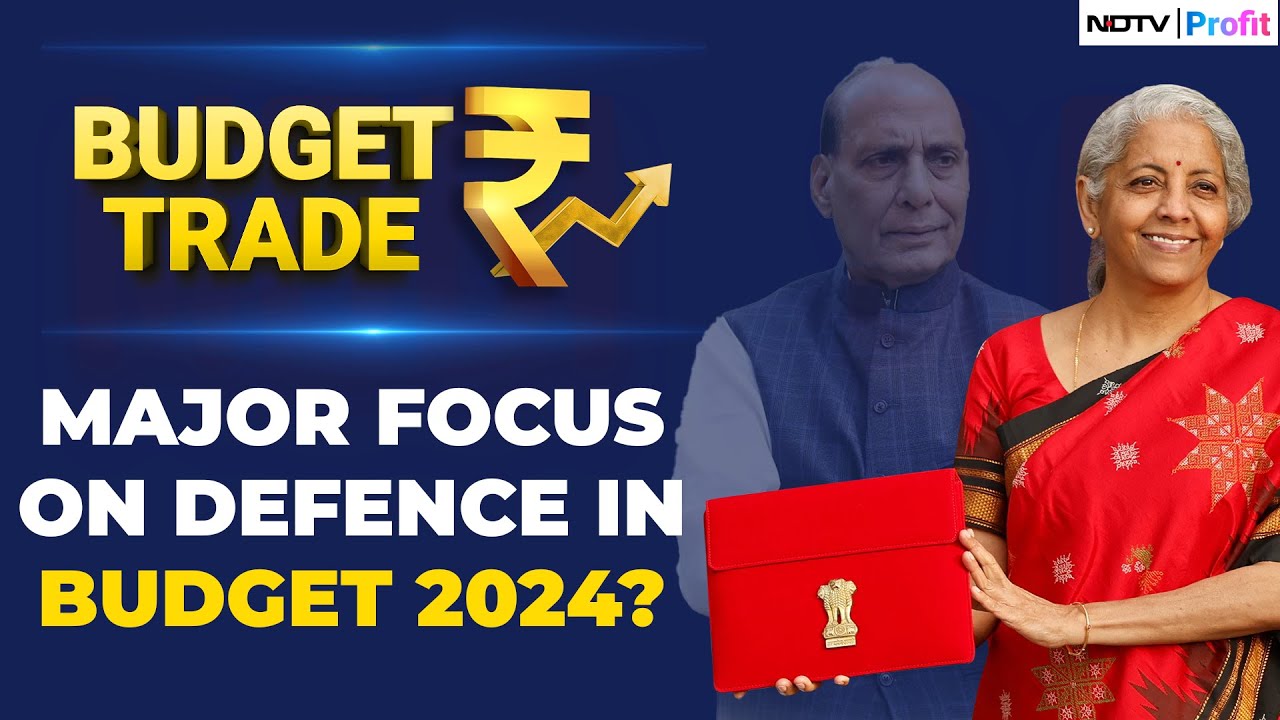Budget 2024 Analysis | What did Middle Class get? | Dhruv Rathee
Summary
TLDRIndia's Finance Minister Nirmala Sitharaman presented the Interim Budget 2024, focusing on capital expenditure with an 11.1% increase to ₹11.11 trillion. Key allocations include ₹2.55 trillion for railways, promoting eco-friendly Nano-DAP fertilizers, and aiming to reduce edible oil imports. Despite cuts in food and fertilizer subsidies, the budget slightly increased education and healthcare spending. The government targets a 7.3% GDP growth rate and aims to reduce the fiscal deficit to 5.1% of GDP by 2024-2025, with a long-term vision of a $7 trillion economy by 2030.
Takeaways
- 📅 The Union Budget 2024 was presented on 1st February by Finance Minister Nirmala Sitharaman, and it was an Interim Budget due to the upcoming Lok Sabha elections.
- 💼 The focus of the budget was on capital expenditure (CAPEX), with an 11.1% increase from last year, aiming to spend ₹11.11 trillion to boost economic growth and employment.
- 🚂 Railways were allocated ₹2.55 trillion, with plans for 3 new corridors and the conversion of 40,000 rail coaches to Vande Bharat standards.
- 🌾 In agriculture, the government announced Atmanirbhar Oil Seeds Abhiyan and a focus on Nano-DAP, an eco-friendly fertilizer, aiming to reduce edible oil imports.
- 💰 There was a reduction in subsidies for fertilizers and food, with allocations cut from ₹1.89 trillion to ₹1.64 trillion and from ₹2.12 trillion to ₹2.05 trillion, respectively.
- 🏫 The education budget saw a small increase to ₹1.25 trillion, but significant cuts were made to UGC, IITs, and IIMs, indicating a shift in educational funding priorities.
- 🏥 The healthcare sector received a modest increase to ₹900 billion, with expansions to the Ayushman Bharat scheme and a focus on cervical cancer vaccines.
- 🏠 The Prime Minister Awas scheme for affordable housing saw an increased allocation to ₹806.71 billion, with a new scheme for middle-class households announced.
- 📈 India's real GDP growth rate for 2023-2024 is projected at 7.3%, with the government aiming to reduce the fiscal deficit to 5.1% of GDP for 2024-2025.
- 💹 The government's revenue is primarily sourced from Income Tax (19%), GST (18%), and Corporate Tax (17%), with borrowing making up 28% of income.
Q & A
When is the budget of the country usually announced?
-The budget of the country is usually announced on the 1st of February every year.
What is an Interim Budget?
-An Interim Budget is a temporary budget that provides estimates for the entire year and is presented in the election year before the Lok Sabha elections.
Why is a full budget presented in July after the elections?
-A full budget is presented in July after the elections because it allows the newly formed government to outline its financial plan and policies for the upcoming year.
What is the significance of Capital Expenditure (CAPEX) in the budget?
-Capital Expenditure (CAPEX) refers to the money spent on long-term assets like infrastructure projects, such as roads, railways, ports, and buildings. It is significant because it boosts economic growth and leads to employment creation.
How much was the government's capital expenditure last year, and what was the actual spending?
-Last year, the government had allocated ₹10 trillion for capital expenditure, but the actual spending was ₹9.5 trillion.
What is the allocation for railways in the Union Budget 2024?
-In the Union Budget 2024, ₹2.55 trillion has been allocated for railways, and 3 new corridors have been announced.
What are the two initiatives announced by the government in the healthcare sector?
-The two initiatives announced by the government in the healthcare sector are the expansion of the Ayushman Bharat scheme and a focus on the cervical cancer vaccine.
What is the projected real GDP growth rate for India in 2023-2024 according to the budget?
-The projected real GDP growth rate for India in 2023-2024 according to the budget is 7.3%.
How does the Fiscal Deficit target for 2024-2025 compare to the previous year's target?
-The Fiscal Deficit target for 2024-2025 is set at 5.1% of GDP, which is lower than the previous year's target of 5.9%.
What is the government's strategy to reduce its fiscal deficit according to the Fiscal Responsibility and Budget Management Act, 2003?
-According to the Fiscal Responsibility and Budget Management Act, 2003, the government's strategy is to keep the fiscal deficit at only 3% of nominal GDP.
What is the main source of revenue for the government according to the budget?
-The main source of revenue for the government is borrowing, which accounts for 28% of the total revenue, followed by Income Tax, GST, and Corporate Tax.
Outlines

此内容仅限付费用户访问。 请升级后访问。
立即升级Mindmap

此内容仅限付费用户访问。 请升级后访问。
立即升级Keywords

此内容仅限付费用户访问。 请升级后访问。
立即升级Highlights

此内容仅限付费用户访问。 请升级后访问。
立即升级Transcripts

此内容仅限付费用户访问。 请升级后访问。
立即升级浏览更多相关视频

Mudda Aapka: कृषि बजट : उपलब्धियां और अपेक्षाएं | 16 July, 2024

What Does The Defence Sector Expect From Budget 2024? | Union Budget Expectations

February Monthly Affairs 2025 | All competitive exams | Current Affairs

Can tax cuts be introduced in Union Budget 2025? | Tax rebate | Income Tax

Union Budget 2025 | Budget 2025 Highlights | Income Tax Budget 2025 | Full Analysis By Krati Mam

Budget 2024 : Biggest mistake of the Modi govt? | Complete analysis
5.0 / 5 (0 votes)
